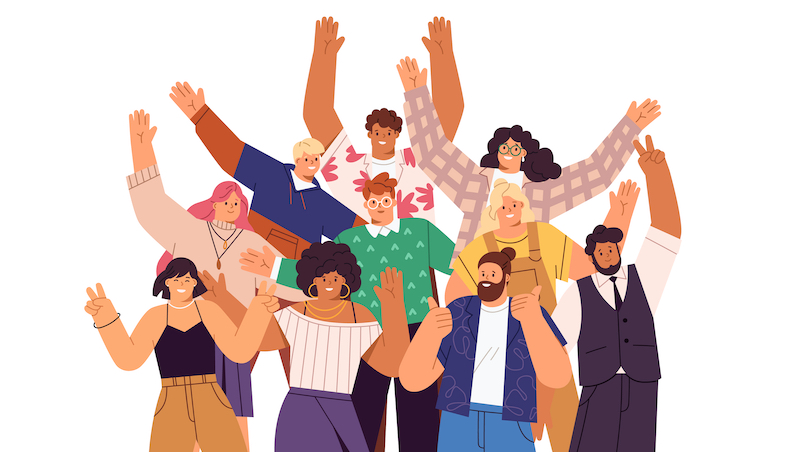How employee networks can be key in nurturing inclusivity
There has been a huge rise in recent years in the demand for the recognition and promotion of inclusion & diversity (I&D) within organisations.
Companies are increasingly hiring I&D specific roles, increasing training and creating strategies to support I&D. But, despite this, large numbers of employees remain disengaged when it comes to talking about I&D.
There are several reasons an employee might engage or disengage with inclusion in the workplace. Their stance could depend on personal factors, such as their own inherent characteristics and experiences, as well as how they are feeling, which could be influenced by external factors such as the cost-of-living crisis.
An organisation with an inclusive workplace culture enables a diverse workforce to thrive — creating an environment where everyone can feel comfortable and confident and have a sense of collaboration and belonging. In turn, these valued employees feel appreciated, trusted and empowered, all of which are critical elements of engagement and wellbeing.
Diversity and inclusion is best approached with a top-down, bottom-up strategy. The strategy is set and owned by senior leadership, but all promotion of this strategy is supported by champions within the organisation. Their role is to disseminate information and co-ordinate activities among the wider business.
Bringing people together
One way to engage employees in the bottom-up approach is through employee network groups. Also known as employee resource groups, these are people who want to represent and advocate for minority employees in the workforce on a voluntary basis.
Examples of common employee networks include:
- an LGBTQ+ network
- veterans network
- groups for people with disabilities
- groups for people from different cultures, ethnicities and races.
Employee networks can also create communities, in which employees can support each other and feel a sense of belonging. They can also play a critical role in advising decision makers in the company on I&D strategy and issues.
Working collaboratively with HR and I&D departments, employee networks can greatly contribute to the increased understanding of equity issues among employees, as well as helping to share information and frame future business behaviours.
Being part of an employee network also helps employees derive more meaning and purpose from the work that they do. Within the workplace, employee networks strengthen acceptance, companionship and fairness across groups, as well as helping members build alliances – while boosting the visibility of minority groups within the business.
But employee networks don’t have to be limited to support groups – when set up and administrated effectively they can also offer professional development opportunities, such as workshops and speaker series, which can help employees build the skills they need to progress in their careers.
And by nurturing talent within employee networks through learning and development training, future leadship will also be more diverse and inclusive.
Recognise the contribution
The important contribution employee networks make to an organisation’s culture and strategy must not go unrecognised. Networks and all their members, leaders and supporters should feel that they are valued and rewarded for the change they are bringing.
Senior leaders should view employee network participation and involvement as offering net benefits both for the employees themselves and for the company as a whole — and give network members time for their extra responsibilities.
Employers should also ensure that individuals are recognised for their input into an employee network, noting this as part of their appraisal process, objectives and KPIs. There are powerful links between recognition and engagement, productivity and performance, so acknowledging involvement and success within employee networks will make employees feel even more valued, appreciated and part of a caring and connected community.
Diversity and inclusion work takes time, patience and perseverance. Be tolerant of co-workers who do not yet appreciate the value of diversity. Often, negative behaviour comes from ignorance rather than malice. A willingness to educate can go a long way.
Supplied by REBA Associate Member, Unum
Helping the working world thrive throughout life’s moments’








